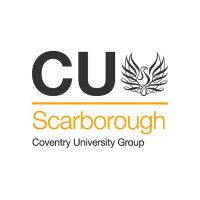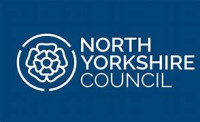Here is the next installment in our "A Week In The Life Of" series!
Hello my name is Vicki Mallows and my job role is Workforce Lead for York Teaching Hospital NHS Foundation Trust. The Trust provides hospital and community health services to 800,000 people across York and NE Yorkshire; employs almost 9,000 staff; and its turnover is £0.5bn per year.
The role of Workforce Lead is one of many in Human Resources i.e. the people management ‘stuff’. I work with senior managers in services such as Emergency, Elderly and General Medicine, and Community Services. My focus is on strategic aspects – addressing recruitment or retention difficulties in particular roles; reviewing how we deploy both permanent and temporary staff; succession planning, developing new roles, use of apprenticeships; and ensure we are supporting staff to the best of our ability. I also have to react to unexpected pressures and, when capacity doesn’t meet demand, be more operational – responding to queries from individual managers about how best to solve the immediate day-to-day people management difficulties they are experiencing.
I liaise with specialist departments that cover the whole Trust, and I also lead a small team that is dedicated to the services that I support. My typical day includes meetings with senior managers across the services that I support, conversations with my own team, and collaborating with my peers.
I am also an accredited workplace coach, and this is one of the most satisfying aspects of my work. Coaching is about working with someone to help them find their own answers to a problem, this could be a specific job-related issue or supporting their development and ambitions to progress in their career.
Speaking of development, you know those people who have a five-year plan? I’m not one of them. I fell into HR. I chose my degree (Business & Sociology) on the basis that those were the two A Levels that I enjoyed the most. I then ditched the sociology when I realised that I’d have to cover all the theory *again*, and then selected various business modules over the next two years based on what interested me. I graduated with a degree in Human Resources (a career that I’d never heard of before starting my course) which included sociological and psychological approaches to work, employment law, recruitment, learning & development, business development, and IT modules. Upon graduation I still didn’t know what I wanted to do, so I decided to try and use my degree.
It’s often hard to get your first job – you need experience, but how do you get experience if no one gives you a job?? I got my first HR job not just because of my degree, but because I also had advanced keyboard skills – there was little admin support in a small company, so I was offered the job on the basis that I should be able to sort my own admin out, as well as doing the technical HR parts of the role. My first lesson about being flexible and adaptable. Many more have followed since!
I have completed both a professional qualification to gain chartered registration with the UK’s professional body for people management specialists, and also a Masters Degree in Industrial Relations & HR Management. There are now many more flexible ways of developing a career in HR and Learning & Development e.g. apprenticeships; which makes it easier for people to progress who otherwise would find it difficult to go down the formal qualifications route.
Covid-19 has had a massive impact on my work. Like many people in office-based roles, there isn’t sufficient space for us all to be onsite as normal. Lots of people are based at home, using IT connectivity to work remotely with each other, but also to link with clinical managers and staff still working onsite. The content of our work changed drastically too during the initial phase of the pandemic – working out the risks and support measures needed for staff, responding to the constantly changing guidance as more was understood about covid, reacting to staff concerns, and doing our best to resolve difficulties when there was no blueprint or prior experience of what it means to work in healthcare during a pandemic.
My key piece of advice for someone who is interested in working in any profession/sector is to find out the practicalities of what your preferred career/job role means in reality. Even if you can’t get work experience (likely to be challenging during covid), ask to talk to someone in-depth, if they work remotely – can you shadow them virtually for a day? I would recommend considering healthcare – with over 350 different job roles, you can probably find a career that plays to your strengths and interests, and it’s great to know that what you are doing makes a real difference to patients.
Back to all news stories












